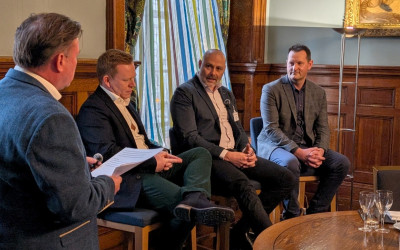Why the broadband roll out is not a setback
In the recent 2025 Spending Review, Chancellor Rachel Reeves announced a revision to the UK’s national gigabit broadband rollout target, extending the deadline from 2030 to 2032. The new target aims to deliver gigabit-capable broadband to 99% of UK premises, with an increased emphasis on improving connectivity in rural and underserved areas across Scotland and Wales.
At Pulse Fibre, we view this updated timeline as an acknowledgement of the very real logistical and economic challenges involved in delivering high-performance broadband, particularly in harder-to-reach regions. It also underlines the necessity to improve connectivity across the UK.
Rolling out full-fibre broadband is not just about hitting targets; it’s about delivering reliability, speed, and long-term value to homes and businesses. The decision to extend the timeline reflects the scale of what’s required: thousands of kilometres of fibre cabling, upgraded infrastructure, street-level installations, and skilled teams working across diverse areas. These are not challenges that can or should be rushed.
The shift also comes with a strategic focus. The government has signalled that Scotland and Wales, regions where connectivity lags behind the national average, will receive additional attention over the next seven years. This is a welcome move that supports the idea of digital equity, ensuring that geography no longer dictates opportunity.
For network providers, the extended timeframe creates space to innovate, expand, and work collaboratively with local authorities, developers, and communities to help close the digital divide. We’re already on the ground building networks that support gigabit speeds, networks designed not just for today’s streaming and remote working needs, but for tomorrow’s smart homes, digital health services, and cloud-based technology.
However, the success of this rollout will hinge on more than ambition. Continued investment and policy support are essential to maintain momentum. The Spending Review must now be followed by tangible action: streamlined planning processes, investment in training for fibre engineers and clarity around funding for harder-to-reach areas.
The UK’s digital future rests on full-fibre infrastructure, not just to power individual homes, but to support entire sectors such as education, healthcare and manufacturing. A robust, futureproof broadband network will be a cornerstone of national productivity, environmental sustainability, and social inclusion.
At Pulse Fibre, we remain committed to accelerating the UK’s fibre journey. Because fibre isn’t just about faster downloads. It’s about building a connected Britain where every home and business, no matter where they are, can be part of the digital future.
for more information visit www.pulsefibre.co.uk
Additional news

GOLDBECK and Prime partner to deliver vital key worker housing in Dorchester
GOLDBECK, a leading European construction and development company that focuses on systemised, industrialised building methods and Prime plc, a UK-based specialist developer of health and care...
Read more
Major industry leaders join DataScope in shining spotlight on construction health and safety
The vital roles data and technology can play in enhancing construction site safety saw industry leaders come together for a thought-provoking health and safety insights event, hosted by DataScope.
Read more